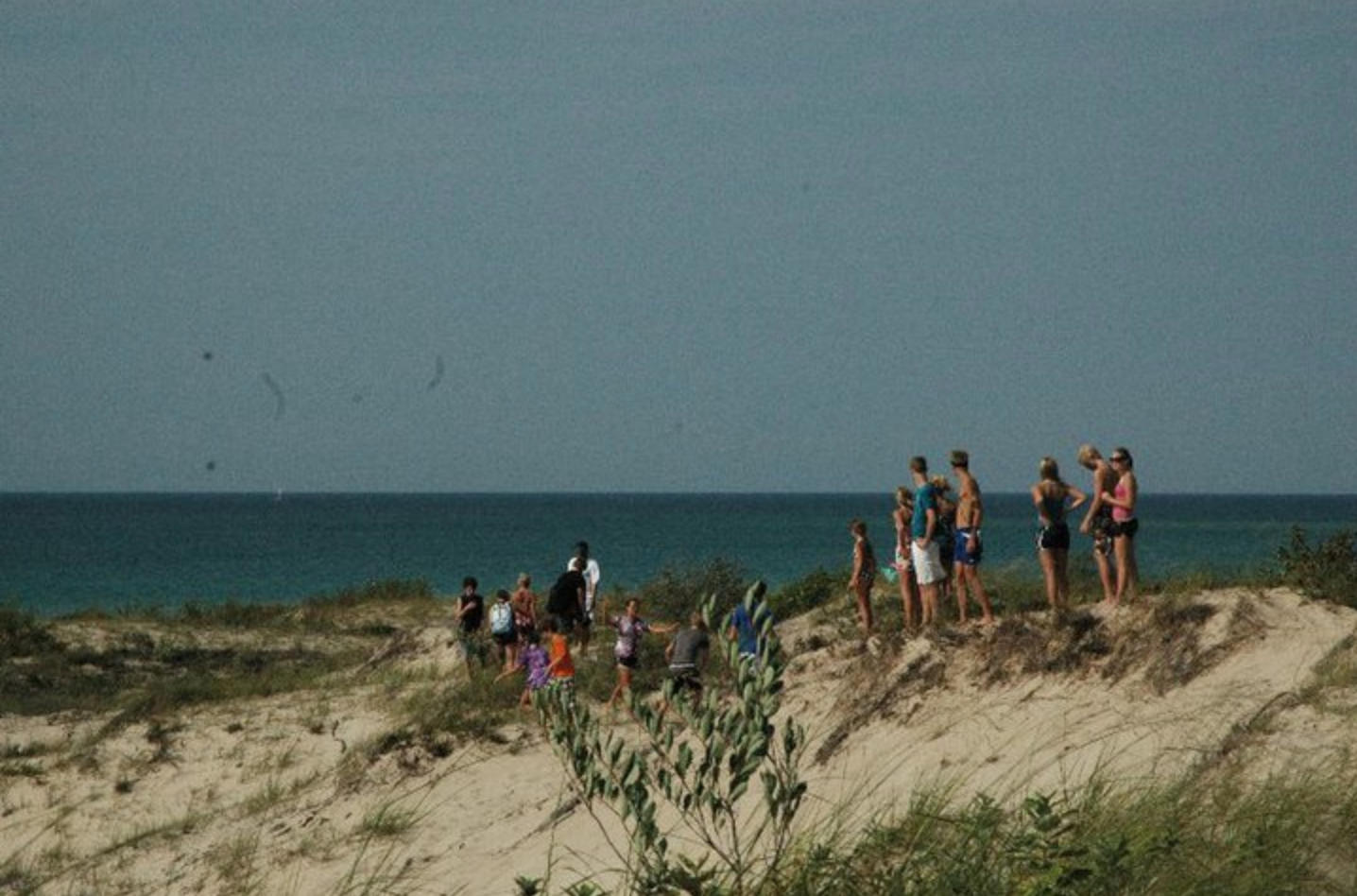Why I’m excited about the future of energy … and you should be too
Having recently joined the clean energy team at Environment America, I’ve been reflecting on this transition. It’s always motivating to hear others tell the stories of why they chose the work they do, and my aim here is to offer the same inspiration, and offer a positive take on why we should all be excited about a clean energy future.
Cleaner water, cleaner air, and unlocking the power of the elements

Ben and Family at Leelanau State Park on Lake Michigan, Photo: Ben Sonnega
Having recently joined the clean energy team at Environment America, I’ve been reflecting on this transition. It’s always motivating to hear others tell the stories of why they chose the work they do, and my aim here is to offer the same inspiration, and offer a positive take on why we should all be excited about a clean energy future.
My career in environmental advocacy really started with my parents, who met at Johns Hopkins University while getting their Ph.D.’s in public health. I grew up in Plymouth, Mich., in a house where discussing topics other than mundane matters like the weather and what’s on TV were not only encouraged at the dinner table, but also expected. Politics, religion, extraterrestrial life — you name it, we argued about it.
But when I say argued, I don’t mean we always disagreed. My dad would famously play devil’s advocate to force us to bring evidence and reason to the table along with our feelings. It would sometimes drive me crazy, and it wasn’t until later in life that I realized we actually agree on most things. I still consider the dinner table my training grounds for becoming an advocate in the professional world today.
During my junior year of high school, I took a summer bioethics class at my parent’s alma mater in Baltimore. Over the short two-week course we covered a lot, but the part that stuck with me the most was when we got out of the classroom and into the community. We took a bus tour of the smokestacks, incinerators and other forms of point-source pollution around the city.
Experiencing the choking air pollution first-hand and hearing from some of the people living the reality of breathing toxins on a daily basis was eye-opening. I knew from that moment on that whatever my chosen career, it needed to include helping prevent that kind of pollution and suffering. Nevertheless, I wasn’t sure what that looked like.
After high school, I enrolled at the University of Michigan. When I arrived in the fall of 2013, I was undecided on my major. I had no prior classroom experience with environmental issues, but that changed quickly during my freshman year. Through a combination of physical and social sciences, I began to draw the connection between the public health threats my parents chose to spend their careers working on, and the world’s largest existential threat — climate change. By my senior year, I had narrowed that focus to energy policy.
Overhauling our energy infrastructure has always looked more like an opportunity to me than a daunting task. We live in a broken system where extracting fossil fuels from the earth causes environmental catastrophe in the name of progress. Converting these resources to energy for consumption pollutes the air and water, warms the planet, and exacerbates the impacts of climate change we’re already experiencing.
If we were given a chance to start fresh with energy sources that won’t pollute, run out or warm the planet, why wouldn’t we take it? In many ways, we’re moving in the right direction. My vision of a world with windmills capturing energy along the coasts and solar panels on every rooftop unlocking the power of the sun is a lot closer than you might think. According to Environment America’s Renewables on the Rise report, solar energy production has increased by 40 times since 2009, and solar and wind combined generates enough now to power 35.7 million american homes. Millions of americans are being freed from dirty fossil fuels and unlocking endlessly renewing wind and sun to power their homes. That’s extremely exciting.
The transition to clean renewable energy is often framed around avoiding the worst outcomes of climate change. While that is true and important, we can look at this transformation in a more positive light, as an opportunity. Staving off the worst impacts of climate change will also result in cleaner water and air. Being from Michigan and watching the Flint water crisis unfold has instilled in me that these things are not to be taken for granted.
There’s a smarter, cleaner, more sustainable way for us to produce and consume energy, and it doesn’t take a Ph.D to see that. It’s not just about avoiding disaster, we are building a better future for ourselves and for generations to come with renewable energy, and to me that’s worth smiling about. So whether you started at the dinner table as a kid, or you’re just joining this movement, there’s no way but forward and I’m excited to be in it together.
